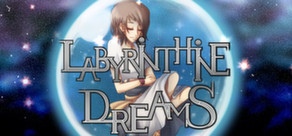
The Final Frontier (2010)
This album makes a good companion for a long car trip. At a massive 80 minutes, the (currently) last album in Iron Maiden's career is the most dense and complex of them all. As with A Matter of Life and Death, it takes numerous listens to fully appreciate the intracacies of each track. However, it's less grim and serious than its predecessor, closer to Somewhere in Time and Virtual XI in its varied offerings and overall futuristic vibe. It's very impressive work, even though it can sometimes feel like the density of the music comes at the cost of an emotional connection.
Earlier in Maiden's career, Steve Harris was asked how long the band would last and he quipped that "we'll stop at number 15." This is number fifteen (and it has the word "final" in the title), but Steve told the fans not to take that comment seriously. But this is the fourth decade the band has released albums in...and many of the songs deal with death, the afterlife, and an uncertain future. I hope that more work will come, but if it doesn't...this isn't a bad note to go out on.
"Satellite 15...The Final Frontier" is a two-part song, and the first half defies all expectations. An industrial-sounding, downright weird introduction is almost guaranteed to make listeners ask aloud, "This is Iron Maiden?" It still proves to be quite effective, with a dizzying bassline and thundering drums. Once the second half gets underway, it sounds more like traditional Maiden with burly riffs and blazing solos. The lyrics depict an astronaut who has become stranded with no way to contact help. He knows he will die in his small craft and realizes that the "final frontier," which often refers to space, is actually death, a realm which will forever remain a mystery to mankind until we arrive there ourselves.
 Bruce Dickinson described "El Dorado" as "a song about all the economic crap that's been happening." Comparing the mystical lost city to the bullshit promises of ethically-challenged bankers and brokers, this song is a welcome takedown of the unscrupulous crooks of the Wall Street world that anyone in "the 99 percent" can probably appreciate. It kicks off with an angry-sounding explosion of metal and follows up with a menacing riff similar to the one from Heart's "Barracuda." The mischevious lyrics, from the point of view of one of these characters, are full of amusing zingers, but the last verse draws the most blood. "There is no easy way for an honest man today, which is something you should think on as my lifeboat sails away." These bastards trick you, make their money, and then leave you to starve...and nobody will help you, least of all the government.
Bruce Dickinson described "El Dorado" as "a song about all the economic crap that's been happening." Comparing the mystical lost city to the bullshit promises of ethically-challenged bankers and brokers, this song is a welcome takedown of the unscrupulous crooks of the Wall Street world that anyone in "the 99 percent" can probably appreciate. It kicks off with an angry-sounding explosion of metal and follows up with a menacing riff similar to the one from Heart's "Barracuda." The mischevious lyrics, from the point of view of one of these characters, are full of amusing zingers, but the last verse draws the most blood. "There is no easy way for an honest man today, which is something you should think on as my lifeboat sails away." These bastards trick you, make their money, and then leave you to starve...and nobody will help you, least of all the government. This song won Iron Maiden their first Grammy Award (for Best Metal Performance), but to many metal fans it was the equivalent of Martin Scorsese winning a Best Director Oscar for The Departed while his 1970s classics went unrecognized. The band had been nominated before (for the song "Fear of the Dark" ), but it's also worth noting that the Grammy Awards didn't even have a category for Metal until the late 1980s, when most of Maiden's "Golden Age" was done. Better late than never, I guess.
The band once again revisits the horror of war with "Mother of Mercy," a grim tale of a Blackwater-esque mercenary suffering in the midst of some terrible destruction, learning the error of his ways as his life is about to end. It's a solid track with some really powerful moments, even if the lyrics take a left turn into religious matters in the second half of the song. It's not as coherent as the band's other examinations of spiritual conflicts - I still can't figure out what the protagonist means when he says he doesn't "hold with bad religion." The high chorus is audibly hard on Bruce...he's starting to sound like a man who has been singing heavy metal for 30 years. Just don't tell him that - I have a feeling he's going to keep it up until he drops.
The ballad "Coming Home" is very evocative of its subject matter, with an opening riff that conjures up images of flight. Written by Bruce, who is a licensed pilot, this is a poetic, beautiful ode to the freedom that comes from flight and the bittersweet feelings of returning home. The lyrics are just awesome and full of striking images, and the instrumentation is pretty complex without feeling overly complicated to listen to. A nice song for driving at night...and if any of us are lucky enough to fly our own plane, it probably would work even better for that.
"The Alchemist" is this album's fast and fun Janick Gers track, boasting a lot of similarities to "Man on the Edge." Based on the myths surrounding the Elizabethan-era British occultist "Doctor" John Dee, the catchy riffs and video-game vibe deliver a lot of enjoyment. It's refreshing that the guys in the band are still such nerds; most of the fans wouldn't have it any other way.
"Isle of Avalon" is a moody, slow-paced epic that sounds like a combination of a few other Maiden songs. Most of it resembles the middle section of "Seventh Son of a Seventh Son" (the song, not the album). The chorus is a bit like "The Pilgrim" from the last album, with its sustained high singing. However, as with "Mother of Mercy," it starts to sound like Bruce is just a tad over his head when it gets to the highest notes. While I do like it well enough, it feels like one of those songs that doesn't quite earn its nine-minute length. The lyrics play with Celtic imagery and mythology without really congealing into anything memorable. I feel like it might have worked better at six or seven minutes instead.
The haunting "Starblind" could pass as a sequel to "The Final Frontier," since it concerns a man who has just recently crossed over to the other side. What he finds is that none of Man's earthly conceptions of the afterlife were even close. This song may win the award for Iron Maiden's most dense, literary lyrics ever - a high school English class could spend hours dissecting its layered commentary on humanity's foolish assumptions about powers greater than our own. Musically, it's a classic example of a "grower." I didn't think I cared for it during my first few listens of the album...but the more I heard it, the more I appreciated its ethereal atmosphere and superb guitar work and it became one of my favorites on the album. The instrumental section starting at about five minutes in is some of the most epic, stunning work Iron Maiden's ever done...it's not uncommon for me to rewind the track numerous times to hear it over and over again.
More proof that Iron Maiden can make any subject matter epic and emotional comes with "The Talisman," a breathtaking story of the pilgrims who fled Europe for Plymouth Rock. You may never look at that part of history the same way again. The extended acoustic intro is distractingly similar to "The Legacy," but this song ultimately proves to be a very different beast. Once it gets going, the song rollicks ahead with relentless guitar and sublime vocal melodies. The solo here is the best coordination of the three guitarists I've yet heard - they all come together to evoke vivid images of a ship struggling against the waves of the Atlantic Ocean, it's truly incredible. What makes it all come together so well is the lyrics, which take on a tragic heroism in the emotional climax as the narrator succumbs to scurvy just after seeing the shores of the New World and knowing his companions will be able to start a new life. This is easily the album's best song and it's satisfying to know that Iron Maiden can still put together a masterpiece like this after fifteen albums of material.
"The Man Who Would Be King" is a good long song sandwiched between two better, longer songs. This is another track that takes a while to appreciate and improves with several listens. The guitars get quite a workout, with several excellent riffs and a complex middle section that sounds downright psychedelic. The guitars glide all over the place while Nicko seems to be enjoying an extended drum solo. I suspect what makes it stand out less than the songs before and after is that the lyrics are pretty vague - I have no clue if there's any connection to the Rudyard Kipling novel (or the movie adaptation) of the same name.
If The Final Frontier turns out to be Iron Maiden's last album, "When the Wild Wind Blows" is a fitting grand finale. Go back and listen to "Prowler" and marvel at the progression from that simple piece of classic metal to this 11 minute epic. The story seems to have been inspired by "When the Wind Blows," an obscure animated film about an old couple preparing for a nuclear attack...though the story ultimately goes into a very different direction. The Gallic-sounding melodies add a touch of tenderness to the story right away, and the instrumentation is superb. About four minutes in, there's one amazing sequence where after some particularly moving lyrics, the solo sounds like the guitar is actually breaking down and weeping.
This emotional roller-coaster of a song has a very surprising ending - the old couple in the movie did indeed have to endure a nuclear explosion, but in the song they poison themselves in anticipation of the disaster and it is revealed there was no nuclear attack coming at all, just overblown predictions from television news. The topic of the song is ultimately alarmism in the media, which is certainly worthy of discussion, but I can't help but wish the song had adhered closer to the film and delved into the horrors of nuclear holocaust. Perhaps the band had enough of that with "Brighter Than A Thousand Suns," and decided that the "wild wind" of fear and paranoia was, in its own way, just as dangerous.
_______________________________________________
Overall Strengths: This album is absolutely packed with intelligent, complex music and rewards multiple listens. More often than not, the lyrics are brilliant.
Overall Weaknesses: While not without some powerful moments, it doesn't quite hit the emotional highs of the two albums before it. Not all the songs justify their length.
Recommended Tracks
Coming Home
Starblind
The Talisman
When the Wild Wind Blows
Next: No more albums (for now?), but we will bring this series to a proper close with...lists galore!




No comments:
Post a Comment